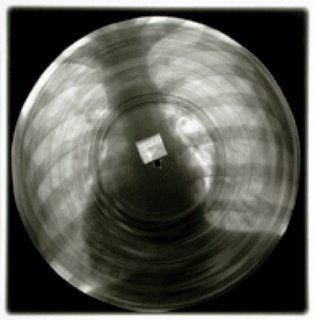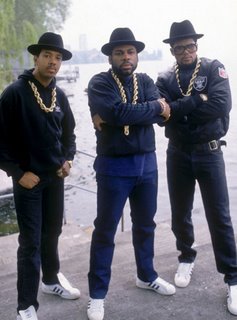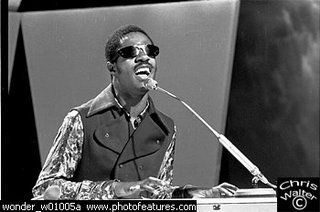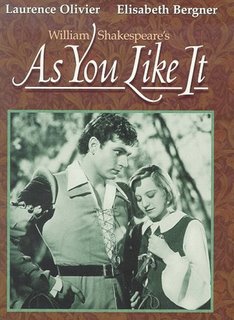Editor's note: Because my lawyers have advised me to exercise extreme caution in the presentation of this data, some details and names have been changed to protect both the guilty and the innocent. Hello, my name is Les Tremain. I used to work at the world-famous Institute for Muckracking Lunacy. I don't work there no more. This is my story.
[Cue opening credits / music.]
Gather around, children, this is a real tale of intrigue.
First, the backstory: I was brought on to the IML "team" two years ago, thanks to the urging and politicking of my good and brilliant friend, Charlie Graumann. Graumann warned me in advance of what he was getting me into, though at the same time he seemed to hold out hope that if enough good people came to work for the organization, we'd together overcome its pathologies with wit and good humor, not to mention the sheer bouyancy of our ideas. From my perspective, any paycheck that I received for thinking about stuff (as opposed to paychecks received for teaching spoiled teenagers how to ace the SATs, which was my day job at the time) sounded pretty good. My daughter (Tina Tremain) had just been born, and and my wife (Mrs. Tremain to you) was on leave, and we needed money.
What pathologies, you ask? Well, the IML has always been crippled by its founder: the very dangerous, very powerful, and (ah, what the hell, let's not mince words here) totally insane Dean of USC's School of Phantasmagoria, Lizzy P. Nightly. She's perfectly qualified to be a dean, of course: she's wealthy, she name-drops like a constipated pigeon, and she doesn't know doodly-squat about education. Like the Hollywoodland from whence she sprung, she only cares about the sheen, the veneer, the glitz, and the dog and pony show. She's plastic to the core. I suspect she may run for president someday: don't vote for her.
Nightly's basic stance, arrived at in conversation with (of all people) Han Solo (she will never, ever stop telling this story), is that moviemaking is the academic language of the future. She doesn't exactly put it that way (instead of "moviemaking," she usually substitutes the phrase "image and sound") but that's what she means. She posits a world in which writing and critical thinking, as academic pursuits, will join the horse-drawn carriage on the dust-heap of history. Books will become obsolete. Ideas will be "communicated" and "argued" with pictures (and, to a lesser extent, sound). There's a New Age naivete to this position, as if "going digital" is an entirely benign enterprise.
Now, those of you who know me personally know I'm no Luddite. My resistance to Nightly's vision was not derived from technophobia. Computers? I love the little buggers. The web? I'm there every day. But I do resist the idea that traditional writing (you know, with words) will ever become outmoded as an academic or intellectual practice. Like
George Orwell and the late great
Neil Postman, I think it's the best tool we have for the precise articulation of knowledge and (especially) argumentation. Besides, I think writing actually thrives in a digital environment (look at the so-called "blogosphere," for fuck's sake). And furthermore (excuse me while I climb on this soapbox for a moment): in this era of creepy -- no,
evil -- politicians co-opting postmodernism's penchant for linguistic play (e.g. "Mission Accomplished") in order to stay in power, it is more important than ever that we teach students to think carefully, which means teaching them to use language carefully, which means teaching them to write. Again, considering our political context, poo-pooing that traditional responsibility of academia is an act of pure hubris and irresponsibility. And because the IML did poo-poo that traditional responsibility of academia, the rest of the University (particularly those with vested interests and proven track records, like the Writing Program) looked upon us with distrust and, in some cases, loathing.
Complicating things further, the story of the IML has always been a tale of struggle between those who lorded it over the Institute (primarily Nightly and her two lackeys, one willing and one reluctant (Stephan Hashish and Annie "Balsamic" Vinegar), on the one hand, and those who were working at education's "ground level": TAs, post-docs, junior faculty, etc. The focus of the contention was always the disconnect between rhetoric and actuality. The IML's slate of course offerings were all (in my view) crippled by this problem. The curricula (such as it was) called for courses that got "beyond writing," but instructors were consistently at a loss to demonstrate what students really knew once writing was no longer the common currency. There was little agreement among IML faculty / staff as to what we were actually doing, or what "multimedia literacy" -- er, sorry, muckracking lunacy -- even was. When things went wrong -- usually because of the abovementioned disconnect -- the TAs took the brunt of the stress, as our leaders conveniently checked out to attend some ridiculous function or other. Suggestions for improvement, offered by those who were actually involved in the teaching of IML courses, were generally met with deaf ears. Not surprisingly, rank and file morale was typically low. People put on a brave face in the hallway, but behind closed doors there was seemingly no end to the discontent.
Technically, I was hired to write a textbook that explained the IML's methodology. But the IML didn't really have a methodology -- at best, it had a loose hodge-podge of half-formed ideas that had been only partially jotted down in a few brochures and articles like the one linked above. It didn't take me long to discover that what was actually expected of me was that I would create literature that adhered to the party line -- i.e., Nightly's simplistic notion that moviemaking is the new academic language -- rather than working to help flesh out an actual philosophical position for the IML's cart-before-the-horse-ism. To put it more ironically: because I can write, I was hired to write a book to explain why universities no longer need writing. It was a cleverly disguised PR job, rather than an academic appointment, per se. Luckily for me, no one really kept tabs on (or seemed to care about) what I actually did. But over time, I became more and more disenchanted with the Institute's grand claims, and came to think of myself as the resident interloper at our endless meetings (I suspect many of my colleagues secretly felt the same way about themselves).
Charlie was probably my closest confidante in this regard. We had many long surreptitious conversations about the problem, which eventually took on an ethical dimension: as fathers with young children who would be entering some lousy school system or other in a few years, it didn't take long for us to feel the pressure of working for an organization that seemed hell-bent on dismantling the very thing that we thought a liberal arts education was for. Then, one particularly frustrating week last fall, we sort of accidentally created the class (IML 499) that we would have wanted to run had we actually been in charge of the IML (I still remember the night I wrote the draft syllabus: there was a huge thunderstorm that seemed to presage the road we were going down). The distinction was that our course was actually built on the
USC Writing Program's foundational course (a requirement for all incoming undergrads at USC), rather than pretending that writing was no longer important. It used a single, user-friendly and text-friendly software -- Robert "Dark Lord" Stevens' ICK4, rather than forcing students to learn a suite of professional design tools like Flash and Final Cut Pro. It was modest, cautious, "gradualist," and logical.
All this was well and good as long as IML 499 remained hypothetical. But at some point we told the Dark Lord about it (since we considered him a fellow traveler of sorts, and never had anything against darkness per se), and that really set the ball rolling for our demise. The backstory here is that Robbie (as we called him) -- egomaniacal, brilliant, curmudgeonly, high-intensity Robbie -- himself had sort of a strained relationship with the IML, not to mention with "Dizzy Miss Lizzy" (as we called her). He was affiliated with the Institute in some way that I still don't completely understand, but the long and short of it is that he seemed to feel that they wanted to use his name (because of his fame in intellectual circles), but they didn't actually want to make use of any of his work. As a result, ICK4 had been languishing on IML computer screens for several years before anybody had gotten around to incorporating it into a class. When Robbie found out we had gone so far as to make it the staple of a proposed course, he got a little, uh, excited.
So we had a few surreptitious meetings with him at a local Starbucks, and began to plan what was essentially an insurrection: use Robbie's connections at the University, and my and Charlie's connections with USC's Writing Program, plus the support of fellow IML-er Lucia Koop (who already had developed a national reputation for her work with new technology and education), and do an end-run, offering the class to the University without bothering to check in with any of our "superiors."
It was, in retrospect, a very cheeky move. We had gotten some very positive feedback from the University right away (someone pretty high up in the hierarchy actually told me off the record that this was the sort of thing he had been waiting for the IML to produce all along), so I think we were a little arrogant about what we could accomplish. We thought the "best idea would win" (as Charlie put it) and we knew we had the best idea. As I said, our course was much more logical than the typical IML offering, and it didn't run roughshod over the academic tradition. It was also very inexpensive (mostly because it didn't require a lot of software or tech support). As a matter of fact, Nightly and Vinegar were at the time in the midst of trying to get the University to agree to a gianormous budget for an IML General Education program they were proposing for Fall 06 -- and were meeting with some resistance, to say the least. So we thought we were timing our coup perfectly.
Alas, were we wrong. In academia, as in too many other areas of American life, the best idea doesn't win. We had hoped to quietly submit the course to the University and then lay low for a few months in the hopes that it would be approved, at which point it would be unveiled as a fait accompli. As it actually happened, word got back to Nightly-Vinegar almost immediately. As the IML's resident "powers that be," they had the authority to pull the plug, and we were essentially fucked. Or, more specifically: the Dark Lord was always safe, cuz he was a senior affiliate of the IML. But Charlie, Lucia, and myself were called into Vinegar's office for an "urgent meeting," during which we were read the riot act for undermining her authority (and during which I had an uncanny flashback to high school). It was actually sort of comical, because she was essentially reaming us for having had the chutzpah to create what she admitted was exactly the sort of academically strong course that the IML
should be offering. And the only reason for the reaming -- just to be absolutely clear here -- was that Nightly had her heart set on more of the kind of nonsense the Institute had always specialized in.
They couldn't fire us outright, because we hadn't done anything wrong, technically. But the die was cast. When June rolled around, Charlie and I did not get new contracts (Lucia was allowed to remain because she was a much more recent hire). If that sounds harsh, consider the Institute's turnover rate as evidence of a deeper problem: we were joining seven of our recently departed colleagues, and would soon be joined by four more (and who knows who else in the months ahead).
Despite the fact that I moved to LA to get a PhD and try my hand at an academic career, and despite the fact that I still do get a certain thrill from delving into what is sometimes loosely called "the world of ideas," I've known since 2000 or so (the year I formed the IJG) that I wasn't made for the kind of place that academia has become. I suppose I should be thankful to the IML for reminding me pretty definitively of that conviction. For all the frustration that comes with being in the "music industry," it still seems a saner, more generous place than academia. Of course, there was never any question as to where my passions lay: I have been identifying primarily as a musician / composer / songwriter since high school. But I always assumed I'd need a day job to support that passion, and at one time academia seemed the best option for making a living.
Boy, was I wrong!






















